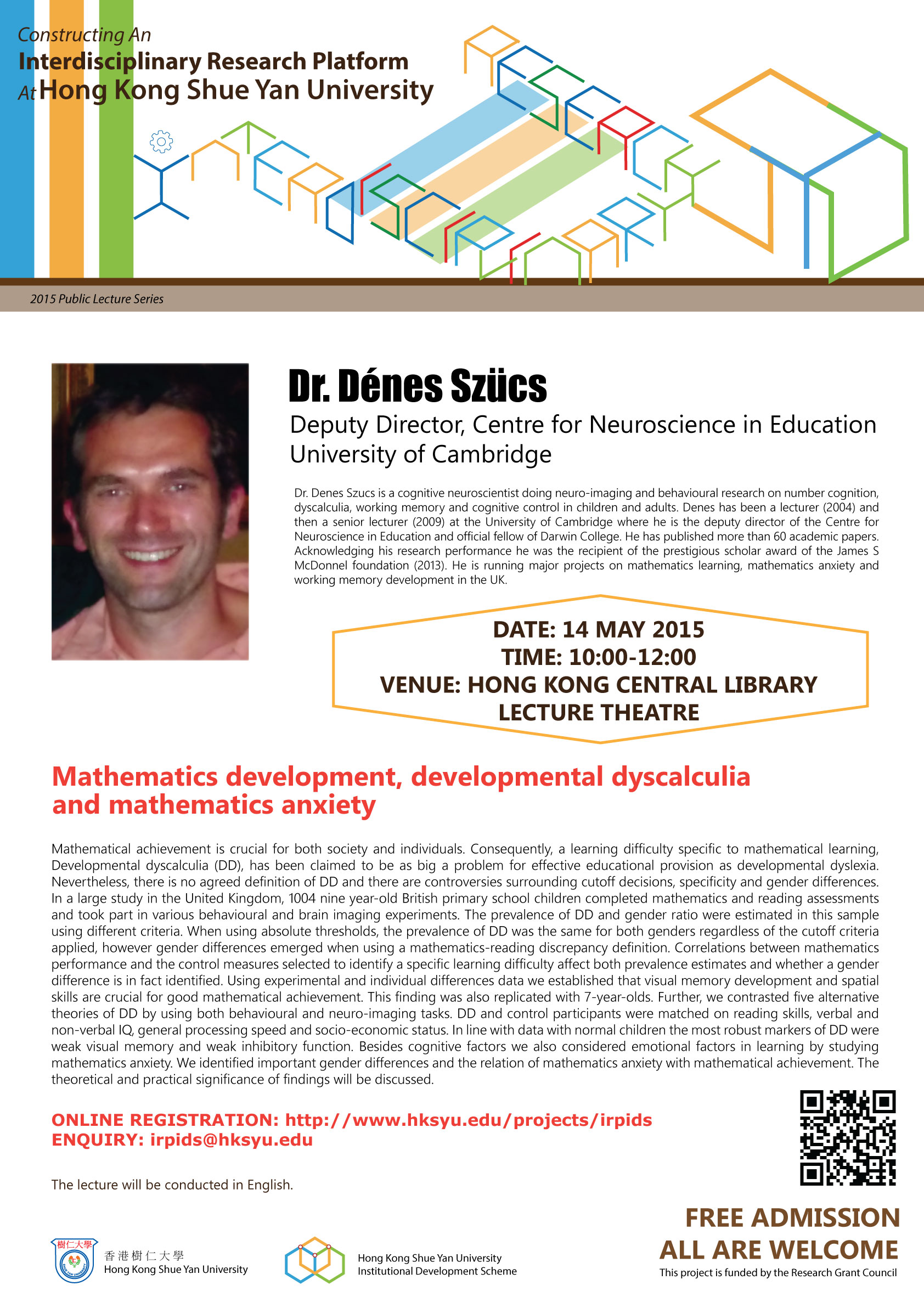Mathematics Development, Developmental Dyscalculia and Mathematics Anxiety
Posted by Institutional Development Scheme for HKSYU
Event Type: Public Lecture
Event Theme: Brain-based Teaching and Learning
Speaker: Dr. Dénes Szűcs (Deputy Director, Centre for Neuroscience in Education, University of Cambridge)
Date: 14 May 2015 (Thursday)
Time: 10:00am - 12:00pm
Venue: Lecture Theatre, Hong Kong Central Library
Language: English
Remarks:
1) Free Admission
2) We recommend registration in advance for seat-reservation and news update.
Introduction
Mathematical achievement is crucial for both society and individuals. Consequently, a learning difficulty specific to mathematical learning, Developmental dyscalculia (DD), has been claimed to be as big a problem for effective educational provision as developmental dyslexia. Nevertheless, there is no agreed definition of DD and there are controversies surrounding cutoff decisions, specificity and gender differences. In a large study in the United Kingdom, 1004 nine year-old British primary school children completed mathematics and reading assessments and took part in various behavioural and brain imaging experiments. The prevalence of DD and gender ratio were estimated in this sample using different criteria. When using absolute thresholds, the prevalence of DD was the same for both genders regardless of the cutoff criteria applied, however gender differences emerged when using a mathematics-reading discrepancy definition. Correlations between mathematics performance and the control measures selected to identify a specific learning difficulty affect both prevalence estimates and whether a gender difference is in fact identified. Using experimental and individual differences data we established that visual memory development and spatial skills are crucial for good mathematical achievement. This finding was also replicated with 7-year-olds. Further, we contrasted five alternative theories of DD by using both behavioural and neuro-imaging tasks. DD and control participants were matched on reading skills, verbal and non-verbal IQ, general processing speed and socio-economic status. In line with data with normal children the most robust markers of DD were weak visual memory and weak inhibitory function. Besides cognitive factors we also considered emotional factors in learning by studying mathematics anxiety. We identified important gender differences and the relation of mathematics anxiety with mathematical achievement. The theoretical and practical significance of findings will be discussed.


